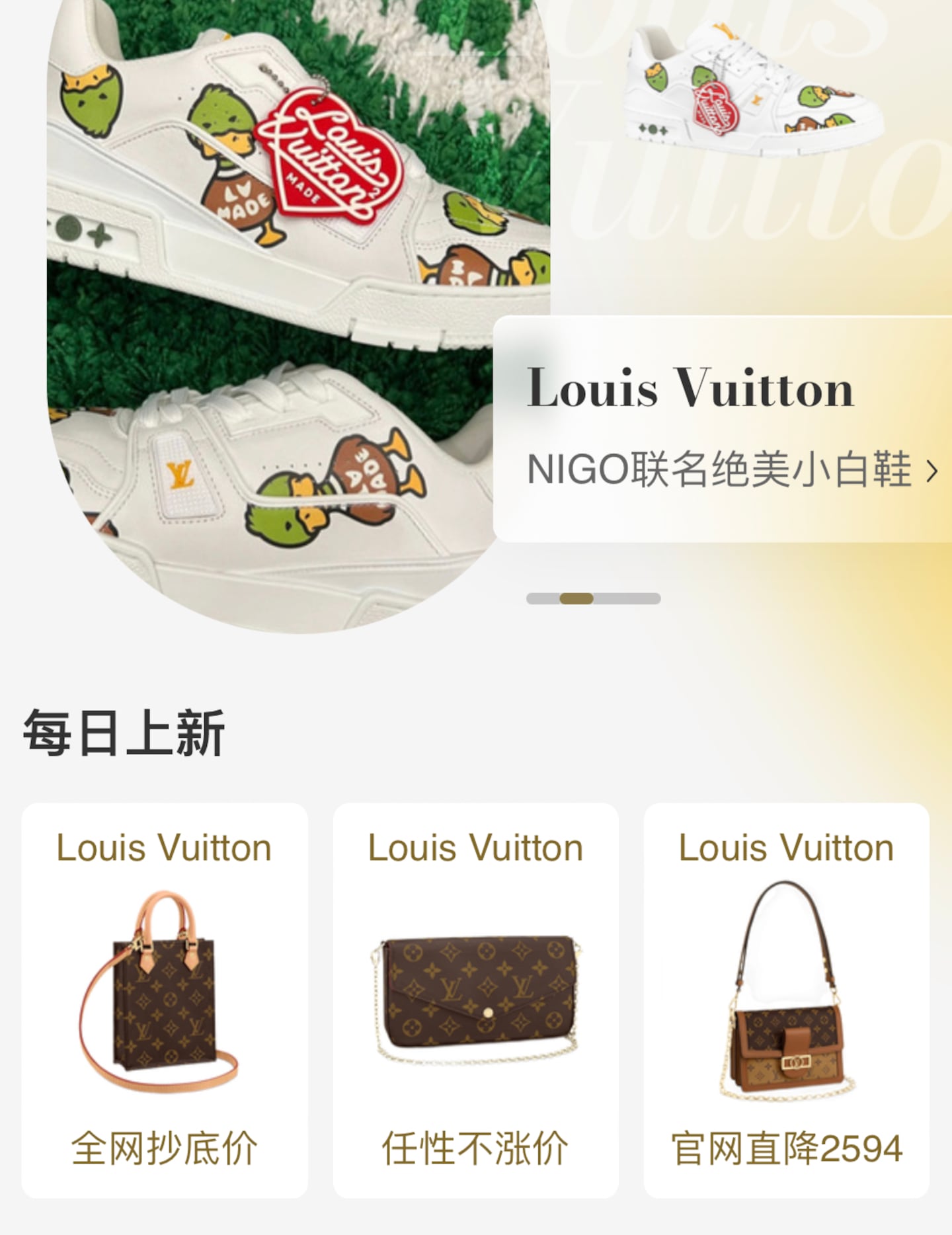
The Business of Fashion
Agenda-setting intelligence, analysis and advice for the global fashion community.

Agenda-setting intelligence, analysis and advice for the global fashion community.

The cross-border e-commerce platform owned by Chinese tech giant Alibaba has launched a luxury channel, offering more than 10,000 products from more than 200 brands including Dior, Louis Vuitton, Burberry, Coach and Givenchy in segments from ready-to-wear to accessories, jewellery and watches.
According to local media reports, the Hangzhou-based company is, in part, working with more than 100 European-based retailers, as well as collaborating with famous Japanese luxury resellers like Daikokuya Inc. and Reclo for pre-loved luxury goods.
Koala Haigou was acquired by Alibaba in 2019 for $2 billion from another internet giant, Netease, and positioned as mid- to high-end shopping platform. The company has lost its previous top ranking in terms cross-border market share to stablemate Tmall International since the acquisition, but its platform still accounts for 22.4 percent of incoming cross-border trade in China.
Learn more:
ADVERTISEMENT
Three Ways Brands Are Tapping China’s Digitally Native Luxury Shoppers
Digital avatars, branded gaming skins and customised red packets are increasingly popular marketing tactics in the world’s top luxury market. Are they here to stay?
With consumers tightening their belts in China, the battle between global fast fashion brands and local high street giants has intensified.
Investors are bracing for a steep slowdown in luxury sales when luxury companies report their first quarter results, reflecting lacklustre Chinese demand.
The French beauty giant’s two latest deals are part of a wider M&A push by global players to capture a larger slice of the China market, targeting buzzy high-end brands that offer products with distinctive Chinese elements.
Post-Covid spend by US tourists in Europe has surged past 2019 levels. Chinese travellers, by contrast, have largely favoured domestic and regional destinations like Hong Kong, Singapore and Japan.